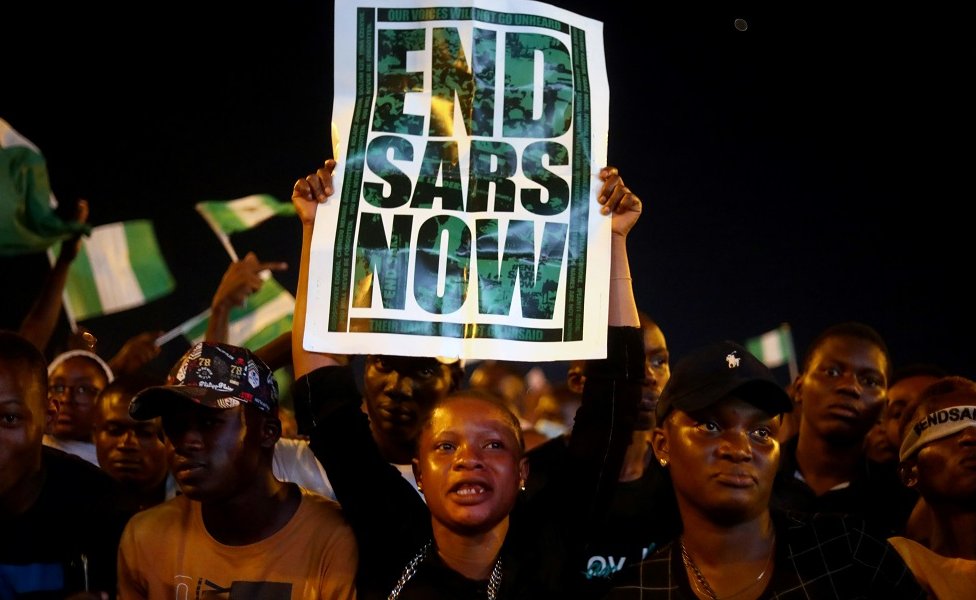Manchester United star Odion Ighalo has become one of the latest celebrities to voice their support for protests against police brutality in Nigeria.
In a video on Twitter, the Nigerian striker called his country’s government “a shame to the world”.
It comes amid reports that several people have been shot dead or wounded during demonstrations in Nigeria’s biggest city, Lagos.
Mr Ighalo, who has won 35 caps for Nigeria’s national football team, said in his statement that he could not “stay silent anymore”.
“I am ashamed of this government, we are tired of you guys and we can’t take this anymore,” he added.
Pray for NIGERIA🇳🇬✊🏿 pic.twitter.com/V7i4Ngs9qd
— Odion Jude Ighalo (@ighalojude) October 20, 2020

Among those who’ve also expressed their support for the protests are actor John Boyega, and musicians including Estelle, Trey Songz and Chance the Rapper.
Pop singer Beyonce Knowles said in a statement that she was “working on partnerships with youth organisations to support those protests for change”.

Musician Rihanna shared a picture of a bloodied Nigerian flag on Twitter and said: “My heart is broken for Nigeria.”
Earlier this week, US rapper Kanye West also showed his solidarity with demonstrators, saying “the government must answer to the people’s cries”.
I stand with my Nigerian brothers and sisters to end police brutality, the government must answer to the peoples cries #EndPoliceBrutalityinNigeria
— ye (@kanyewest) October 12, 2020
British-Nigerian boxer Anthony Joshua said he was exploring donations to support local hospitals and provide food packages.
“This was never a trend for me! It’s real life and I want to learn how to make lasting change,” he added.
I’m looking at hospitals to support, along with food and care packages in the time being.
Nigeria 🇳🇬
— Anthony Joshua (@anthonyfjoshua) October 21, 2020
The protests have also gained support from several high profile figures with no ties to Nigeria, including Twitter’s chief executive Jack Dorsey, and German-Turkish Arsenal player Mesut Özil.
Why are people protesting?
Protests began nearly two weeks ago amid calls for the disbandment of a controversial police unit, the Special Anti-Robbery Squad (Sars).
The unit has been accused of illegal detentions, assaults and shootings, and was disbanded by Nigerian President Muhammadu Buhari on 11 October.
But the demonstrations have continued around the country, with calls for more reforms to Nigeria’s security services, and the government more widely.
Over the last two weeks, an outpouring of support for Nigerian protesters has played out on Twitter, with various hashtags, but predominantly #EndSARS.
Protests have sometimes turned violent. Yesterday human right group Amnesty International said a group of armed people attacked protesters in the capital, Abuja.
 IMAGE COPYRIGHTREUTERS
IMAGE COPYRIGHTREUTERSIn turn, police have accused people “posing” as protesters of looting weapons, and torching police buildings in southern Edo state.
In a video address on Monday, President Buhari said every police officer responsible for wrongdoing would be brought to justice, and that the disbandment of Sars was “only the first step in our commitment to extensive police reform”.








































































